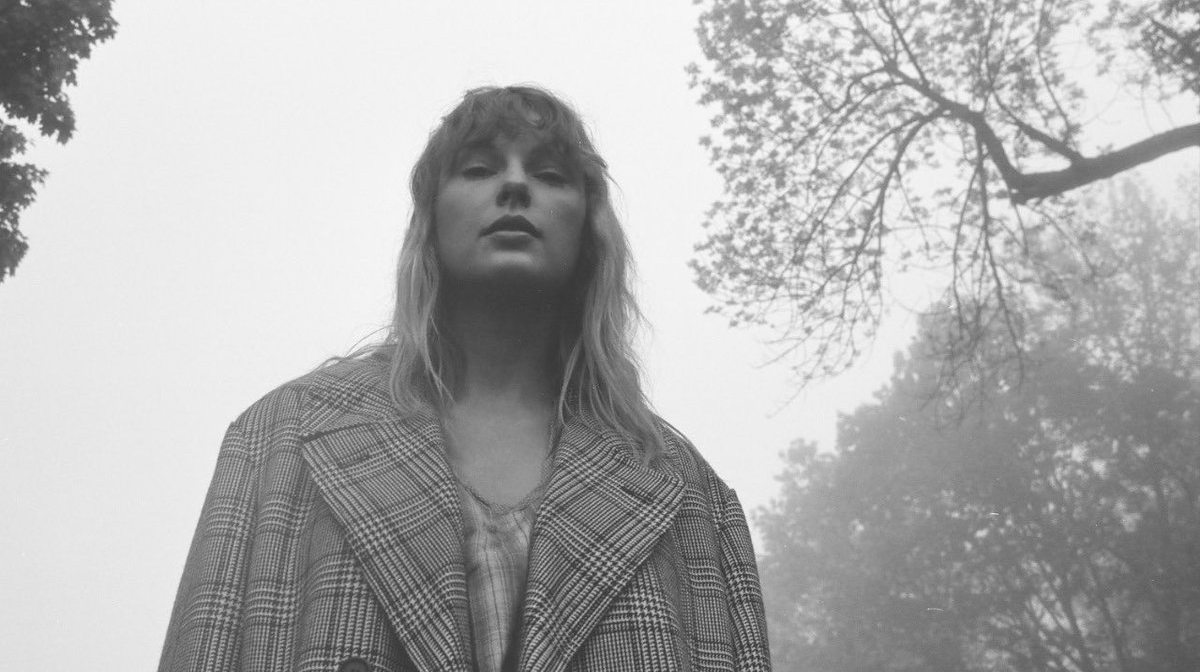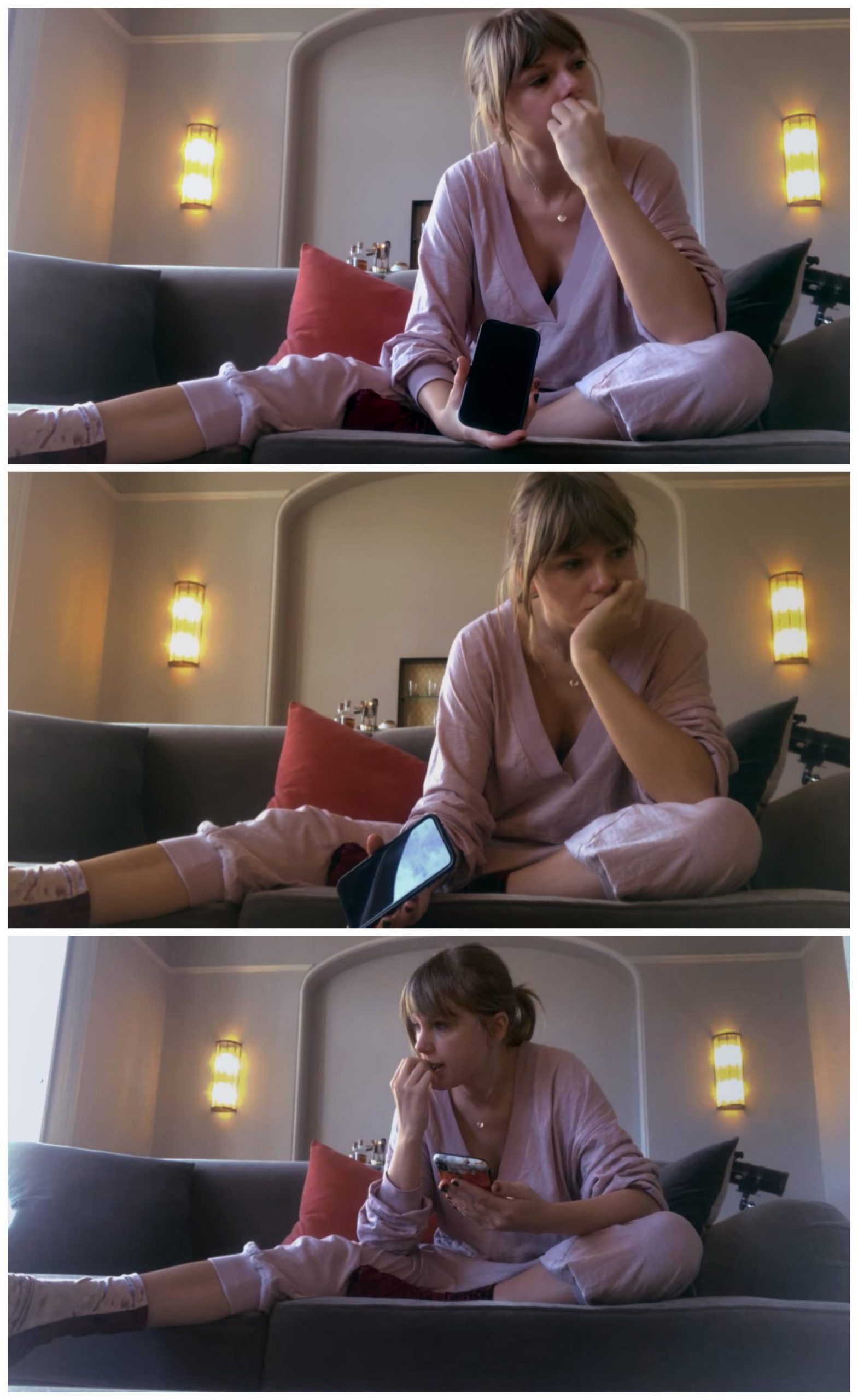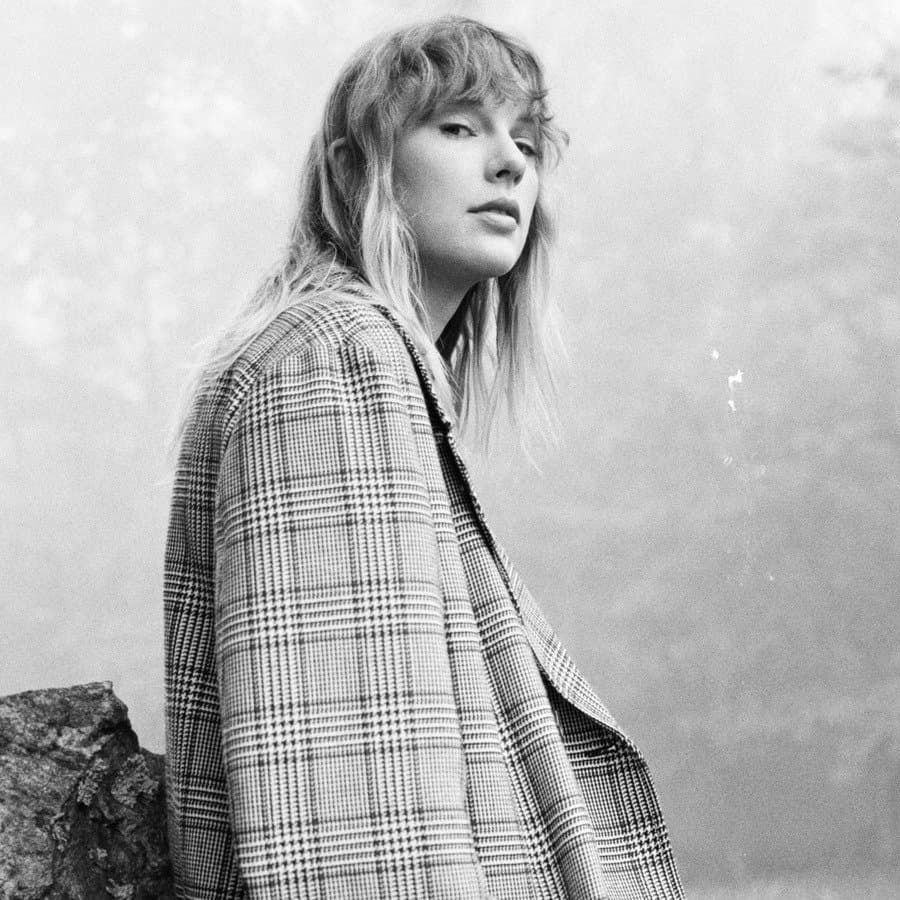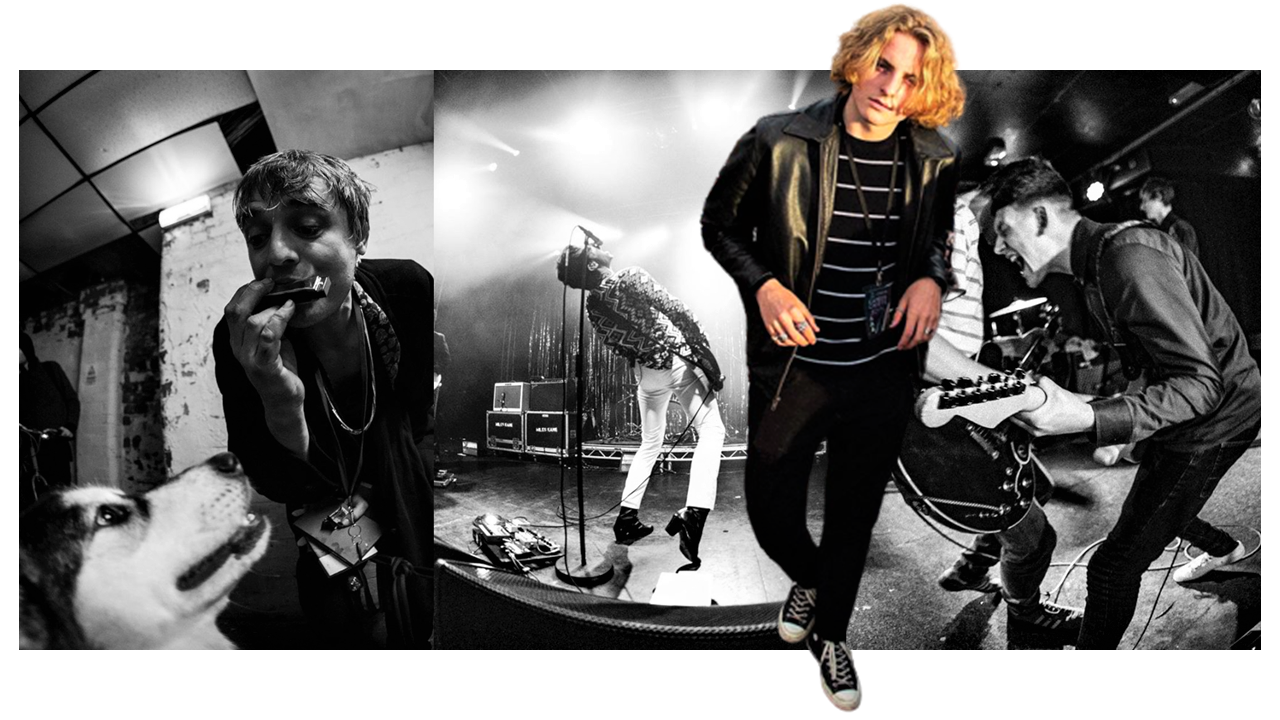Each Taylor Swift release feels like a social reckoning as people indulge in their guilty pleasure, making it all okay with whimsical comments of surprise that the new Taylor Swift album is actually good. You see everyone search for a justification for it, commenting on the production or specific lyrics, or in this album the endorsement of indie legends like Bon Iver, treating each as little lifeboats to keep your reputation afloat. Because there’s nothing cool about liking Taylor Swift, unlike your lingering love for One Direction or your open obsession with other pop princesses like Dua Lipa or Ariana, something about Taylor brings about a defensiveness that’s all too symptomatic of ‘I’m-not-like-other-girls’ syndrome. It’s something unique to Taylor when you stop and think about it, as admitting to liking her music quickly involved taking on a protective role, batting away the comments on her personality, her dramatic legacy and romantic life, that are so attached to her identity as an artist in a way that no one else is burdened with. For fans, album releases are annoying, knowing exactly what’s going to come when you try to talk about how good it is as the comments fall on deaf ears who have already decided it’s bad, another polished shit from an untalented hysterical woman singing about another ex. Any attempt to reason with their opinion is met with an onslaught of headlines as justification: Kanye, politics, public relationships being the classic arguments, presented as facts but pulled fresh from Daily Mail headlines, but where is this beating down for any other popstar? Where is the treatment for her male equivalents that have made a career singing about unrequited love? From day one, Taylor Swift’s career has been smothered by sexism, made mainstream and ‘cool’ the second Kanye stepped up on that stage. Have you ever considered that your hatred for her might be wrapped up in misogyny?
And before you try to say it, yes, you can simply not like her music, you are allowed to not like pop music. What we’re talking about here isn’t a matter of personal opinion about her music, it’s the unique treatment Taylor Swift gets where people don’t like her as a person, talk about her toxic personality as if they know her like she’s a colleague that keeps using their milk. This is where sexism rears its ugly head, as the presentation of Taylor as a person exists hand in hand with her music in a way that never effects Ed Sheeran, Lewis Capaldi or even the many men of indie who managed to brush off abuse claims. The discussion of Taylor as someone they know personally itself is a product of misogyny as the singer became the poster child for all-consuming fame; her personal life blasted into our news with such speed and regularity that we feel like we know her, building a persona out of the abuse of her privacy, and using this persona as justification for the hatred. And yes, while male celebrities are papped daily with news stories about who they had dinner with, each one of these stories about Taylor leaves a greasy stain of judgement. It’s never simply ‘Taylor Swift has dinner with blank’, it’s always ‘AT IT AGAIN! SERIAL DATER TAYLOR SWIFT HAS DINNER WITH MYSTERY MAN 2 MONTHS AFTER BREAKING UP WITH BLANK’. And always written and published before researching to find out that the mystery man is her cousin. While male celebrities may have their private lives exposed, Taylor has hers exposed, judged, and attached to her as a further argument as to why is she is trash and therefore cannot be a good musician.
And that’s the crux of it all. Just how we’d recognise allowing how a woman dresses or speaks or who she dates to eclipse her ability to do a job, erasing Taylor Swift’s success for rumours and beliefs about her personal life is sexist.
When you start to see it, the misogyny is everywhere. When you choose to take on the role as an advocate, a Taylor Swift hater almost always hits a dead end when the contradictions in her treatment vs her male peers become blinding. The dead-end bounces back the same every time: “her songs aren’t good”, “her lyrics are rubbish”, “she’s not talented”. Someone said this to me once but in the same breath told me they liked Ryan Adams full cover album of 1989, hating Taylor’s music but loving it when her words are placed into the mouth of a man, an abusive man at that. It was even more evident with Calvin Harris’ This Is What You Came For was a banger, a perfect summer track loved by all the people that would classically be the ones to laugh off Taylor Swift. So, the reaction when it was announced she wrote the song was laughable. The track suddenly became annoying, conversation switching to Taylor’s “jealous” behaviour in revealing it was her work after breaking up with Calvin Harris. The global success of the song was lost behind the desperate need to still hate Taylor, still characterise her as untalented or toxic in the way we’ve all been trained to.
Trained feels like the right word as the treatment of Taylor Swift feels like something both taught and celebrated, a cycle that reinforces the treatment at every turn as Taylor is trapped in a ‘damned if she does, damned if she doesn’t’ spiral. Of all the common criticisms there’s always another side. Taylor isn’t political enough, but then when she is political, she’s shrugged off as performative or using it to boost her career. She is too thin then too fat. She’s obsessed with Kanye but then admitting her guilt if she doesn’t respond to his newest accusations. She only writes about boys but is told to stick to what she knows when she writes about politics. In her documentary Miss Americana, this double-edged sword is seen painfully clearly as you watch Taylor sit opposite five men and have to argue about why she wants to speak about politics. You realise all the systems she’s trapped in, having signed her record contracts as a minor and struggled to regain control of her public image ever since, Taylor is surrounded by managers that want to keep her as the 15-year-old all-American country girl that they can control and market as they wish. As a watch, it is honestly quite emotionally exhausting getting even an insight into the smothering world she exists in. Starting her day greeted by crowds outside her front door every morning as she walks into another day of battling managers and press alike to get them to recognise that she’s a 30-year-old woman with a right to freedom and personal growth. And on the other hand, watching Miss Americana as a woman feels all too familiar, as sexism surrounds everything she does as her growth from girl to woman was entirely controlled by men in board rooms, amplifying all the microaggressions and abuses all women faced about their bodies, sexuality, ability and strength.
The quietest moment of the documentary shows a scene we’ve all seen a million times. Kanye walks on stage and leaves Taylor stood there silent. What the doc shows that you might not have seen before, is the booing she heard after and thought was aimed at her, a 17-year-old girl trying to break into the mainstream and immediately stomped on by an icon, making it seem okay for all his fans to do the same, making hating Taylor for no reason mainstream. And to break it down more, what we saw was an adult man who got up purposefully to humiliate a teenager. Since, the same adult man went on to use a naked lookalike of the singer in a music video, in which he takes credit for her fame and calls her a bitch. All this before then leaking a doctored phone call to make it seem like she approved the lyrics and sending his fans after Taylor leading to her one-year hiatus. And still, Kanye uses it as a funny little thing, while Taylor went through years of therapy and still faces comments about the event daily, Kanye continues to laugh at the clear sexist incident like a punchline. But of course, when the woman releases one track about her anger towards Kanye, she’s petty and obsessed.
The funny thing is, Taylor Swift had made millions before Kanye got up on that stage. Having been performing since childhood, going platinum with her first album; Taylor didn’t need anyone to make her famous. Let’s not forget she was up there already winning an award. But of course, we hate successful women, always needing to question it, stomp her out.
With 8 studio albums and over 330 awards won, there should no longer be any question about if Taylor Swift is talented or deserving. Regardless of any external factors like appearance or marketability, no one reaches this point without being unarguably talented. With all the throw-away comments of Taylor being untalented or shit, calling her a bad songwriter, it just makes you wonder how many more platinum discs she has to stack up before people will see that the constant rejection of her ability is sexist. Because from where I’m standing, I see it in two ways:
1) The ease with which people insult her and reject her talent is never faced by male musicians in the same way, as people see her as inferior enough to believe they have a right to insult her.
2) On a broader scale, the stereotyping of pop music as shit is another instant where anything that is generally enjoyed by women is considered to be bad or at least less artistic than marked male genres.
Taylor Swift has sold over 50 million albums, no one has the right to call her untalented or doubt her ability as a musician, but yet here we are.
I don’t doubt that there are legitimate criticisms of the singer. Yes, for the majority of her career Taylor could have been far more vocal about politics, allowing for the impression of her as a classically southern republican to go on for too long when this isn’t the case. Yes, Taylor’s feud tracks about other women perpetuate anti-feminist rhetoric. Yes, her early lyrics are problematic. I recognise all of this, but also so does she. Taylor Swift was signed at age 14, imagine the stuff you said or allowed to happen around you back in 2004. Luckily they don’t stick to you in the way that they do to Taylor, where no matter how many statements she releases or how much she donates, people will still bring up her literal childhood, another piece of evidence of the way that women are expected to be perfect and have to work 10x harder to maintain that. But also, none of these criticisms ever pause to consider that maybe the villain here is the male-dominated industry that kept Taylor quiet, a-political and doing the dirty work for the patriarchy in every Bad Blood-esque track. As we see time and time again, famous men have an unending fountain of second chances and forgiveness, something that allows abusers like Chris Brown to maintain a career. But women don’t get the same, still hated at 30 for mistakes at 16, beaten down more for being quiet about elections than men are for literally beating people up. Have you really never noticed the sexism and misogyny in that?
In many ways, Taylor Swift represents femininity and womanhood, and the global phenomenon of hating her with no reason is a clear showing of sexism and the lack of worth seen in women. All the classics are here as Taylor represents all the times’ women’s emotions are deemed hysteria, how our bodies will never be perfect so long as they are real, how our success will have to be proved over and over again and still never recognised as clearly as our male counterparts. Taylor Swift represents the damned if you do, damned if you don’t sexist world that all women recognise because we live in it. All you need to do is take all these little acts and blow them up and blast them onto MTV, and there you have the treatment of Taylor Swift, a gigantic retelling of the small everyday sexism women face for simply daring to exist and be talented.







